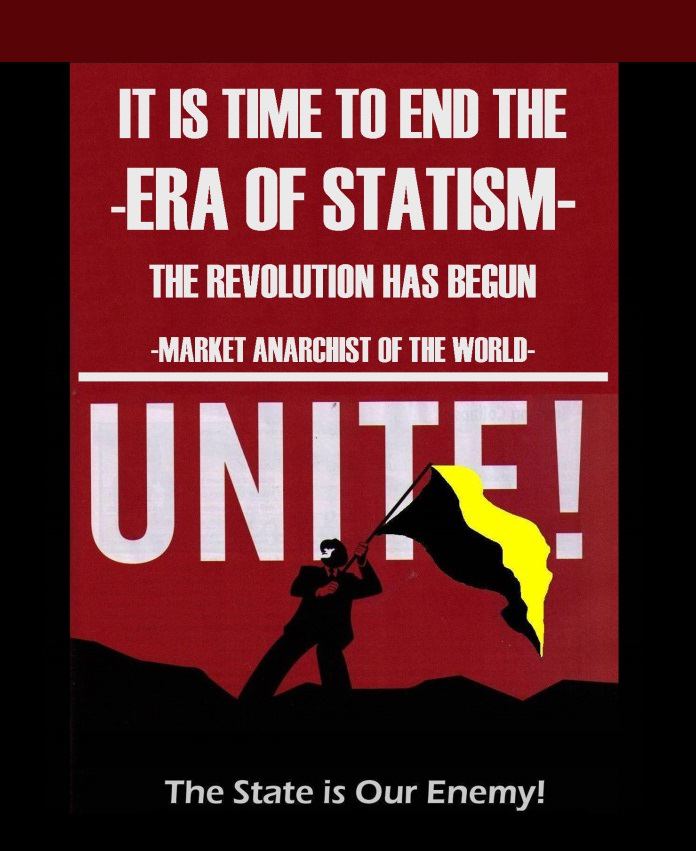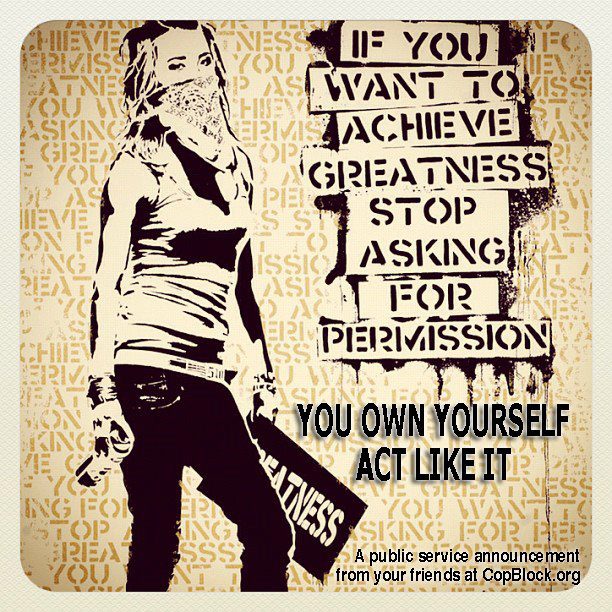Longtime readers of my blog know that I slowly became more and more disenfranchised with politics. At one point I believed, naively, that the political system could be reformed and that liberty could be reclaimed if we could just get the right people into office. I’m over that now, I realized the achieving liberty by begging our oppressors won’t gain us liberty. This is why I’ve ducked out of politics and am focusing on economic solutions and I’m not the only one:
The whole prospect compelled me to re-examine the efficacy of the political process as a means to liberty, and I’m beginning to think that this state sanctioned mechanism for change may not actually be the most appropriate means for our desired end. Perhaps it’s time to rethink all this- to demote on our priority list the stopgap measures of the political process and to begin fervently pouring our talents, energies and monies into a ‘targeted capitalism’, if you will. Liberty lovers everywhere intentionally targeting state-monopolized resources and disintegrating those monopolies through the capitalist process. These means are by nature decentralizing and can be pursued while completely disregarding the will of power. Enough of this pleading with our oppressors not to oppress us so much! Let’s stop being depressed victims of the state and instead start imagining all the endless opportunities its incompetencies create! In the process, we can be around people we like, create wealth by offering real value for the masses, live adventurously, with a clean conscience, and most importantly, live free.
In order to remove the state’s interference from our lives we must make the state irrelevant. So long as they maintain monopolies on needed resources people will continue to falsely believe that those resources wouldn’t be available without the state. How many times have you heard the argument that the state is necessary to build and maintain roads, provide welfare to the poor, and ensure we have clean air to breathe and clean water to drink? Those of us that argue markets can provide all of those things are often doubted. Market skeptics don’t consider the fact that the state prevents such goods from being provided on a free market, they just know that those goods aren’t currently being provided by a free market.
If we want liberty we must step up to the plate and begin challenging the state’s monopolies. We must demonstrate that the state isn’t required to provide goods and services. Once the state has proven to be irrelevant individuals may finally start questioning why they’re paying great deals of wealth to it.
The history of the United States has demonstrated one thing: the political process isn’t an effective means of achieving liberty. In the 236 years this country has been in existence we’ve seen the state grab more and more power. The Articles of Confederation were quickly replaced by the Constitution, which granted the federal government the power to tax. When states tried to leave the United States they were forced back into the Union by a Civil War. In the name of fighting communism more and more spying powers were granted to the federal government. Now we face an almost all-powerful state that claims control over all social and economic issues. It cements its power by preventing others from providing wanted services or helping one another. The state claims it’s necessary to help the poor, sick, and hungry and then prevents others from helping the poor, sick, and hungry. It validates itself by preventing others from doing what it does. Time has come to say “Enough is enough!” We need to start challenging the state’s monopolies, we need to demonstrate that individuals are capable of helping one another. Honestly, we all need to start businesses (not state sanctioned businesses, just businesses).


